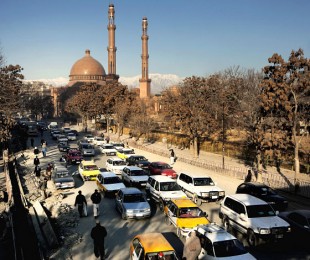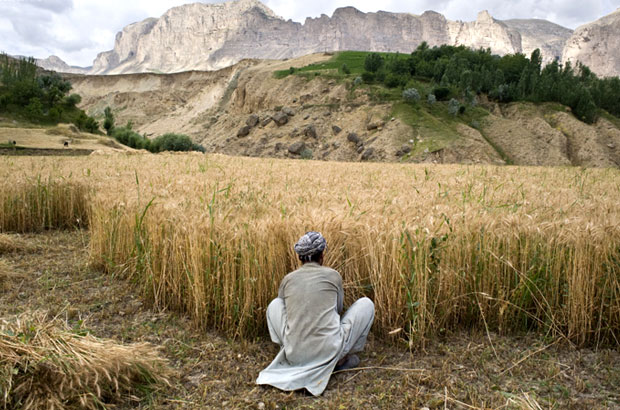Right now, Afghanistan is on the cusp of a series of profound changes. The international troops are drawing down and the process to elect a new President is underway.
All of these changes are leading to an economic transition. When troops were plentiful, they had a positive effect on Afghanistan’s economy: it was growing rapidly (real gross domestic product growth averaged 9.4% between 2003 and 2012) and the troops’ spending provided both direct and indirect revenue for the state. But the economy is now beginning to show signs of slow down, as demand for housing, transport services and labour decreases.

A stable and balanced economy is essential for the long-term development of any country. Three economists - Vincent, Romal and I - make up the economists team here in DFID Afghanistan. DFID funds a huge variety of projects – everything from helping Afghans to start new businesses to improving rural agriculture to building roads, schools, railways and hospitals – and as economists, we work across the breadth of DFID’s programmes to advise on the economic impact of our work.
For my first post, I am going to give you a short introduction to the current challenges facing Afghanistan’s economy. The changes which are taking place in Afghanistan are putting pressure on the economy in 3 main ways:
- Revenue. Foreign donors pay for a proportion of Afghanistan’s government budget, whilst the remainder is financed by domestic revenue collection - essentially, through taxes. Due to a decrease in economic activity overall, revenue collection has dipped this year. If Afghanistan is to avoid cutting public spending and become more self-sustaining, it will need to increase its domestic revenue collection.
- Uncertainty. Given the changes that Afghanistan is going through at present, many people are putting off making investment decisions where they can. This is having an effect on the pace of economic activity. For example, the number of newly registered firms declined 43% in the first 7 months of 2013.
- Readjusting to normality. Over the last decade, the international presence has influenced the economy by, for example, pushing up house prices in cities and creating well-paid jobs. Between 2002 and 2010, these kinds of activities accounted for an increasing proportion of economic activity, but they will decline again as the international presence shrinks. Over time, the economy will have to re-adapt to where its natural advantage lies: agriculture.

The next President will face 3 tough challenges:
- Identifying the right economic policy. Agriculture, mining and services are expected to drive economic growth in Afghanistan. But there are 400,000 new entrants to the job market each year and a qaurter of the labour force don’t have enough work. The new Afghan government will need to generate growth in order to provide its working population with more jobs.
- Pressing on with economic reform. Key economic legislation must be implemented in order for the private sector to develop and thrive: this includes laws on taxation, mining and banking. The new government may also wish to negotiate a new reform programme with the International Monetary Fund to signal to the world that it is serious about reform and stability – and that it’s an attractive place to invest.
- Building strong relations with neighbours. As a landlocked country, Afghanistan is unusually dependent on regional markets to sell its produce and labour. But South Asia is one of the least economically connected regions in the world. Afghanistan will need to link-up with its neighbours and leave politics aside: developing regional roads and energy production as well as trade routes will be a must.
The economists team – Vincent, Romal and I – will be monitoring the Afghan economy and how it responds to these challenges carefully over the coming year. As we do so, we will be blogging regularly about our work and related economic issues. Keep on reading our blog to find out more!
Keep in touch. Sign up for email updates from this blog, or follow UK in Afghanistan on Twitter and Facebook.

Recent Comments